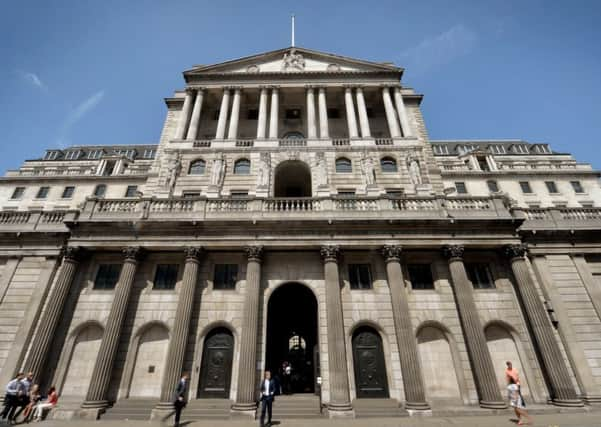Martin Flanagan: Rate cut looms after downbeat figures


Yesterday’s depressing data from Britain’s key services sector rounds off a gloomy picture this week of an economy entrenched in negativity since the vote for Brexit from the European Union on 23 June.
It was widely said at the time that Brexit – which Scotland largely voted against – was an act of conscious economic self-harm by swathes of the Midlands and north of England as a price worth paying for the right to control its borders.
Advertisement
Hide AdAdvertisement
Hide AdThe purchasing managers data for July in the past three days from Markit/Cips, the first month after the pivotal EU vote, shows the economic part of that equation is delivering in spades.
Output and new business in the services sector – ranging from banking and leisure to transport, retail and IT, and accounting for some 75 per cent of UK GDP – fell last month at the fastest rates since March 2009, when we were in the last recession.
UK manufacturing is at its lowest ebb in three years. Construction output is at its lowest since June 2009. The two comprise not far off 20 per cent of the economy. The theme is slowdown, the fear is recession.
Taken altogether, and with UK inflation bumping along the bottom, the Bank of England has plentiful evidence to cite for a rate cut and any other monetary stimulus it might want to consider as well.
Sterling’s plunge hits retailers
British clothes retailers have used cheap sourcing from overseas emerging markets for decades to help keep the costbase down and profit margins rising or resilient.
But the plunge in sterling since Brexit has reversed the natural order of things. Mid-market fashion retailer Next reveals that importing clothes from overseas suppliers will push up costs in the year to the end of January 2018 by up to 5 per cent, and a similar hike in prices for consumers is likely in its next financial year.
And the wider backcloth is not helpful. Sales at Next’s shops fell 3.3 per in its second trading quarter to end-July. When one of Britain’s best-run retailers produces such numbers you know things are not great.